Studio visit with Angie Barrios
Cooking up experiences and memories that connect her to her intuition
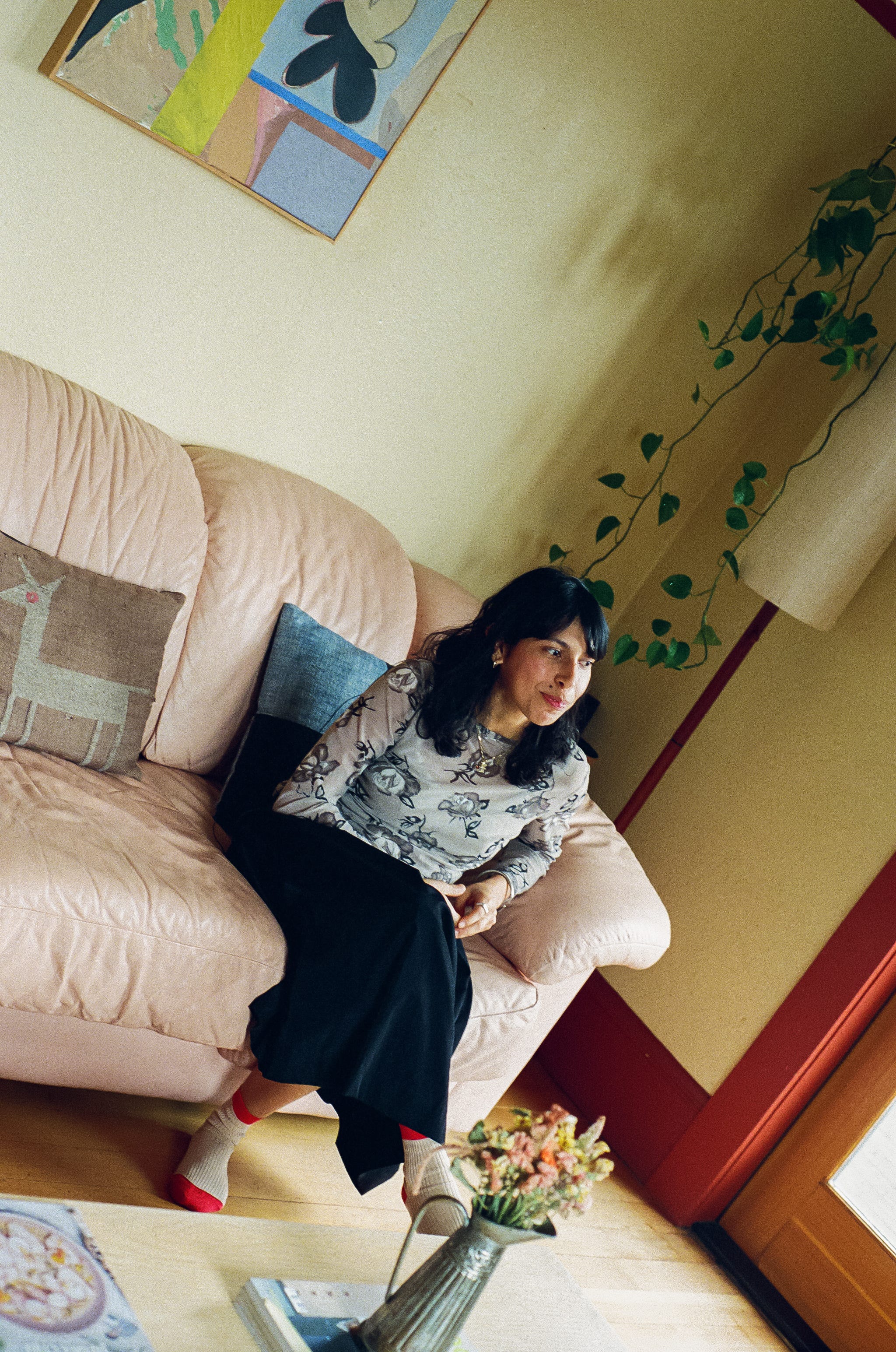
Something smells delicious as we climb the stairs to Angie Barrios’s apartment in Overlook. It’s surprisingly calm inside, even though she and her friend Cortney are only a day away from hosting a communal dinner for 36 people. They’ve been prepping all week and took a trip earlier that morning to the PSU farmers market to pick out fresh ingredients. The menu for the November evening is autumnal forward, featuring lamb squash bearnaise, focaccia and black olive butter, and a crisp radicchio salad with pale pink leaves. In the oven, it’s the brown butter squash cake, the base of one of three desserts, that’s making my mouth water.
Angie is the visionary behind Comparta, which means “to share” in Spanish, the supper series she started in 2022 that pulls together all of her creative interests—though cooking has been a comforting constant. “I’ve always had one thousand hobbies, and I’m so interested in them equally but could never be an expert at any of them and don’t want to,” she says. “We can interweave all of this stuff together. They’re all parts of us.”
Her warm and welcoming space cultivates creativity and collaboration, and is filled with secondhand finds that evoke playfulness and whimsy. She and her partner, Jarred, a child therapist, recently converted their second bedroom into a playroom. His collection of children’s books brighten the walls, and a drum and other instruments collect in the corner for anyone to use. The space has become a gentle landing for them to stim out, make art, or, in Angie’s case, curate a menu.
Your space is gorgeous. This kitchen! Can you orient us a little bit?
I moved to this apartment during the pandemic. I don’t see myself moving out solely because of the kitchen. It’s such an open plan between the kitchen and the living room so it’s never far away when people are hanging out on the couch. It feels very intimate and cozy, and I love that about this house.
This is actually where I started Comparta. I literally just threw six tables out on the balcony, posted it online, and hoped for the best. Two friends came to the first one and everyone else, I had no idea who they were. It kind of just started out that way until enough people wanted to come on a monthly basis and I couldn’t do them here anymore. It’s outgrown itself in a nice way but my partner and I still love hosting. I’ve spent years making this place mine as I’ve had time to settle. It’s carried me through a lot of joy, contentment, grief, growth, and lots of failures. As someone who engages a lot socially with other people—and feeding people can be a really intimate thing—it’s important for me to know how to create a safe space for myself so that I can keep doing that for others.
You hosted a consistent series of dinners this summer with your friend, Joni. Tell us more about how that came to be.
I’ve been doing Comparta for a little over two years now and naturally wearing all the hats as a small business owner. Chef, art director, graphic designer, prop stylist. You can only do that for so long without burning out. I met Joni last year. We were both working at Tusk. She was one of the few people I connected with there. I remember getting towards the end of my time at the restaurant and I was kinda like, so are we gonna be friends? Sure enough, she felt the same way. We ended up leaving the restaurant at the same time and shared a lot of similar life practices and values, like the way we relate to art and the way we like our spaces to feel. I asked her to help me with the dinner series. I thought it would be way more fun doing it with someone else. But it also allowed me to lower my defenses and trust someone else to help me carry this vision. I get to solely focus on the food, and Joni gets to do a lot of the set styling and hosting. It’s worked really well. The past few months, I’ve dabbled with wanting to step away or limit my time around it. But every time we do them, I’m like why would I do that?
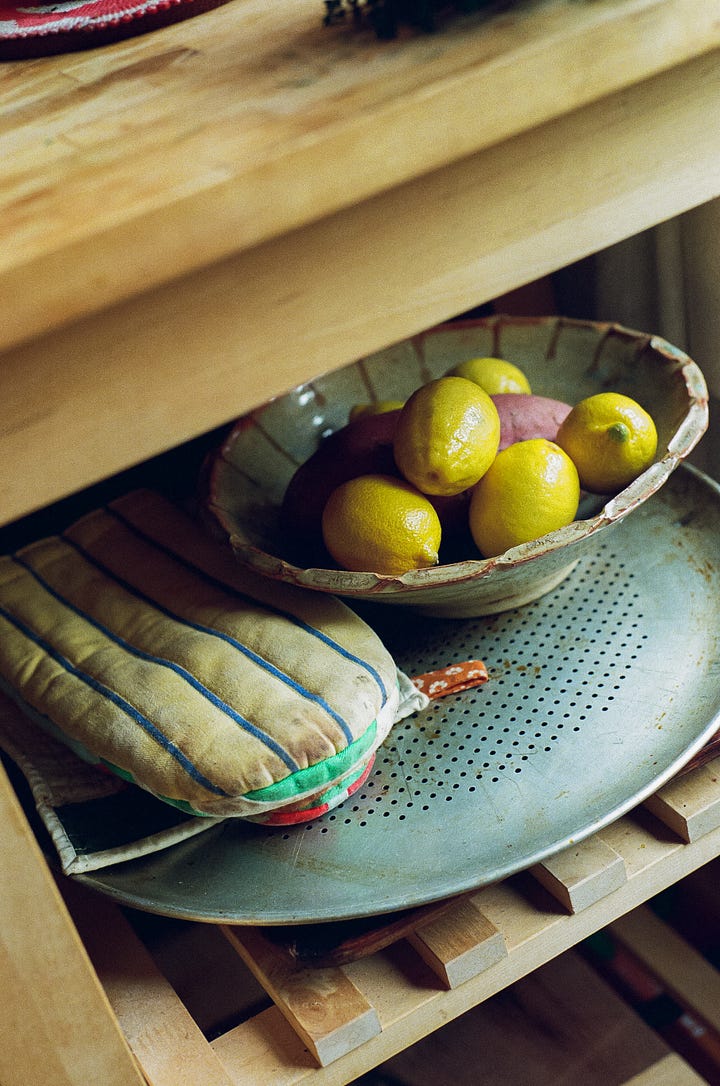
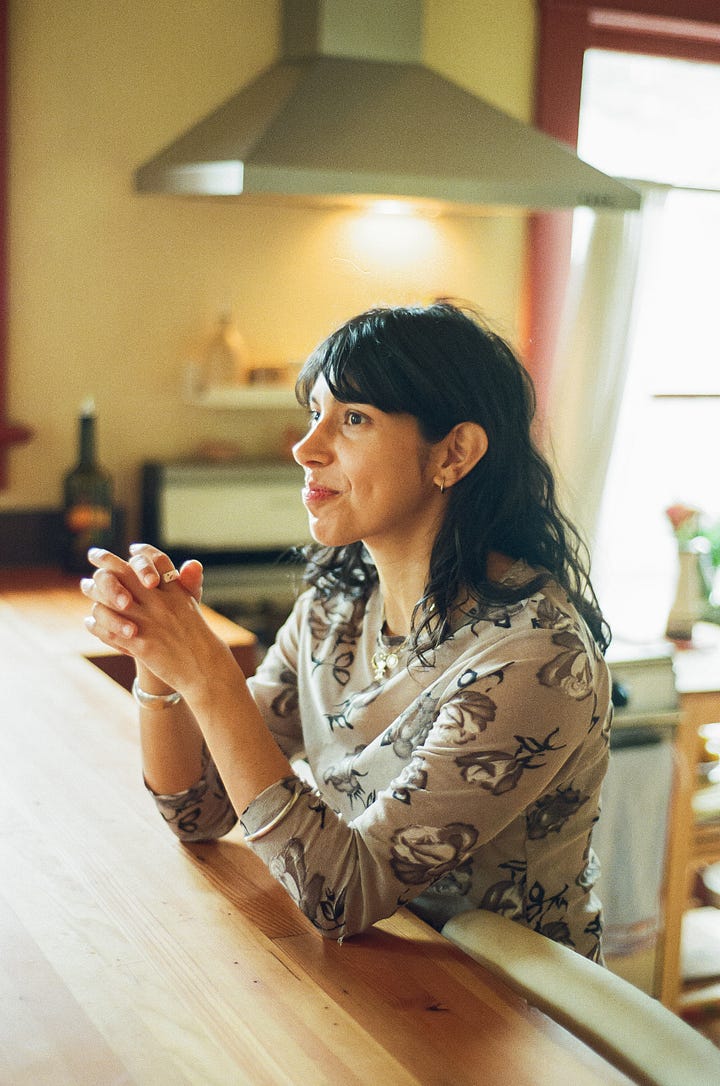
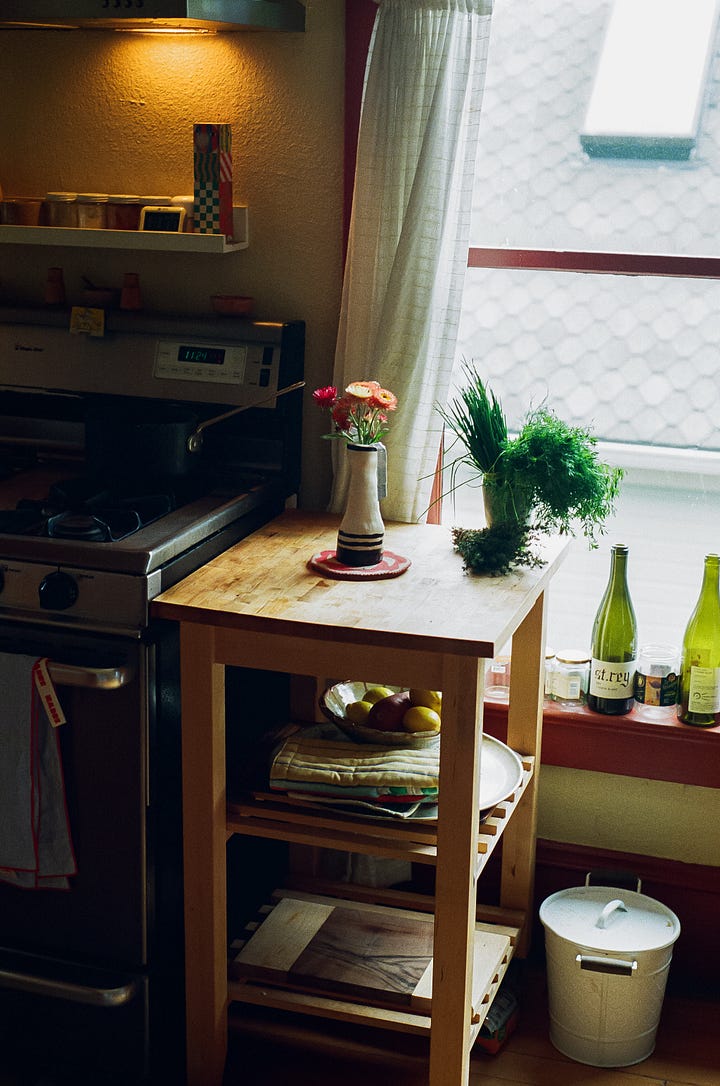
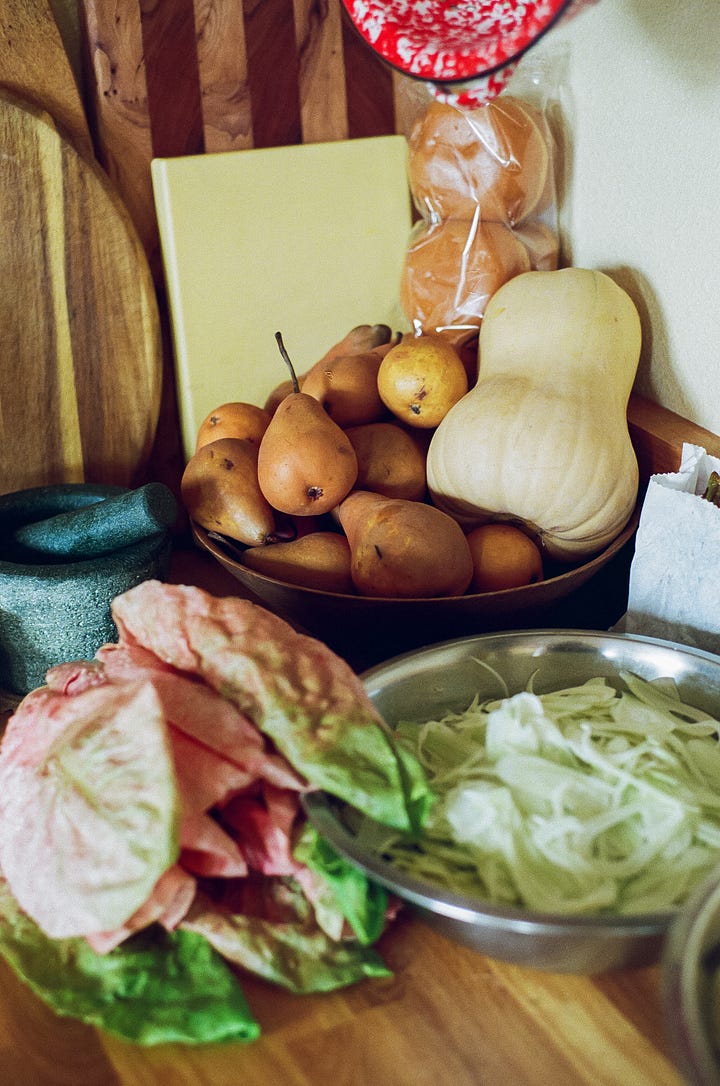
You mean step away from the dinners? What prompts your doubt?
The support we’re getting is really lovely. But I get in my head about these things sometimes and become overly critical of my work. I know people are enjoying it but I’m like, are you really? It’s hard being able to just kind of let that go and serve the thing or just stick to a menu. A lot of the time with my food, I realize it is an entry point for people. Although I like to weave in my culture, I also love food as play and experimentation and honoring not just myself but other people. They’ve never had it or they’ve heard of it. I don’t think mine is the best out there, but I like that they now have tried it and can continue to look for it in other places and have this memory of it. I think I feel really content with that.
Give us a snapshot of what it’s like to attend one.
There’s always this period where everyone’s gotten there and are settling into their seats. Everyone is saying hi and getting to know each others’ names. They’re waiting and thinking, how is this starting, who is starting this, does food just come out? We always go out and give a little speech to set the tone, share the intention, and thank everyone for coming. That moment of coming out with a silver platter of this is what your night is going to look like is my favorite part. I’m so honored to see 30-plus faces looking back at us. They just have this aura of we’re about to have so much fun. It just feels like this really fun, energetic offering. Once the food is going out, it’s like people have known each other for years. It feels good that we have to kick people out at the end.
What significance has cooking had throughout your life?
I was born in Colombia. For the most part, it’s just my mom and I in the states. She still lives in South Florida, which is where I grew up. She remarried when I was a baby. My step-family is also South American. They’re Dominican-Puerto Rican. It was a very culturally diverse household. Growing up, we lived with my step great-grandparents. A lot of my childhood memories are coming home from school. The house would be filled with a ton of kids. I have five step brothers and step sisters. And my great-grandma would just cook for everyone in the easiest fashion. They have two huge avocado trees in the backyard. I would always be barefoot running around outside and climbing up an avocado tree. I have so many memories of it being dinnertime and my great-grandpa would come outside and he’d be like, while you’re up there can you grab a couple avocados? He’d hand me the pole and I’d get them, slowly come down, and we’d go inside and have dinner with the family. That was always our way of bonding.
When we moved away from them, I just always cooked with mom. It was her way of teaching me about home. She’d always cook all this food she missed, and it was a way of her showing me this is our ancestry and these are the things we eat. This is the food that exists in our country and our culture and I want you to know that. So if she was making something special from home, she’d be like, come here, I want to teach you this. I loved that as a kid. Cooking was and is such a fun part of our relationship. And also my relationship to home. I went back to Colombia for the first time when I was 7 years old, 14, and then 21. It is so interesting being from there but not being from there, and living here but not being from here. By trying to weave both of these places, I’m honoring my ancestry from there but also my life here. I think as I’ve gotten older, and especially since moving away from Florida and moving here, food seemed like the easiest thing to keep me rooted. I moved here and was like holy shit, this place is not culturally diverse. That felt really hard. I think it’s gotten better but it can sometimes still feel pretty lonely and it definitely did when I moved here. Food was always my comfort and always a thing I leaned into when I felt lonely or sad or misunderstood or nostalgic. I would sometimes call my mom and be like, I don’t remember how to make this. Can you please give me the recipe? She’d stay on the phone with me for an hour while I was making it.
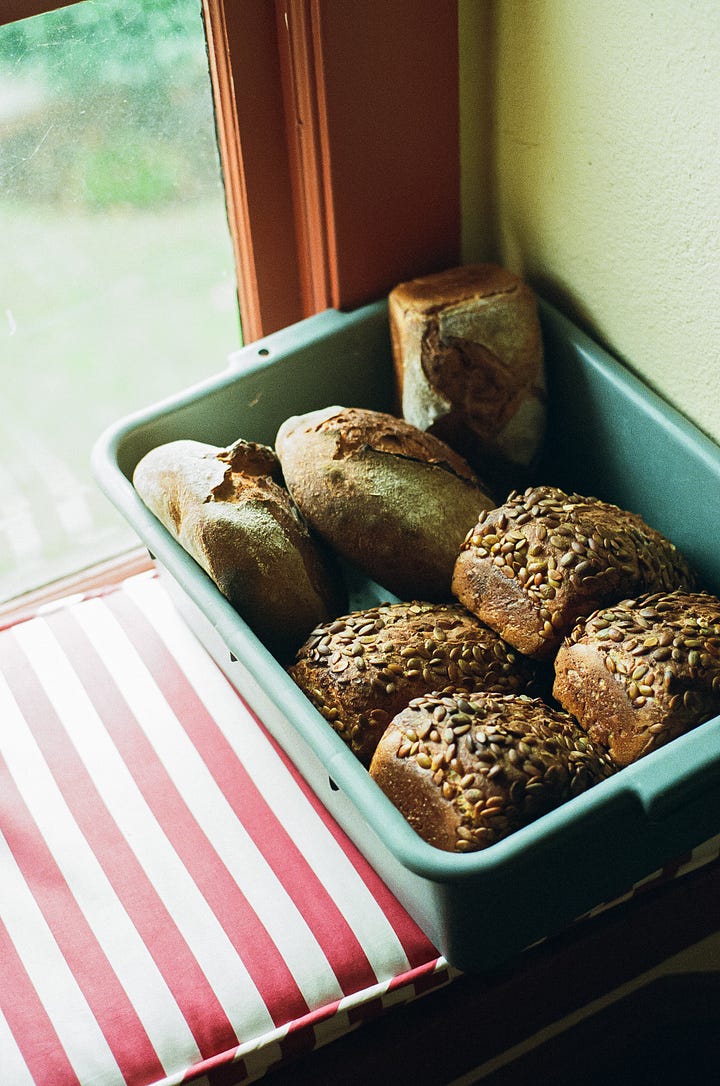
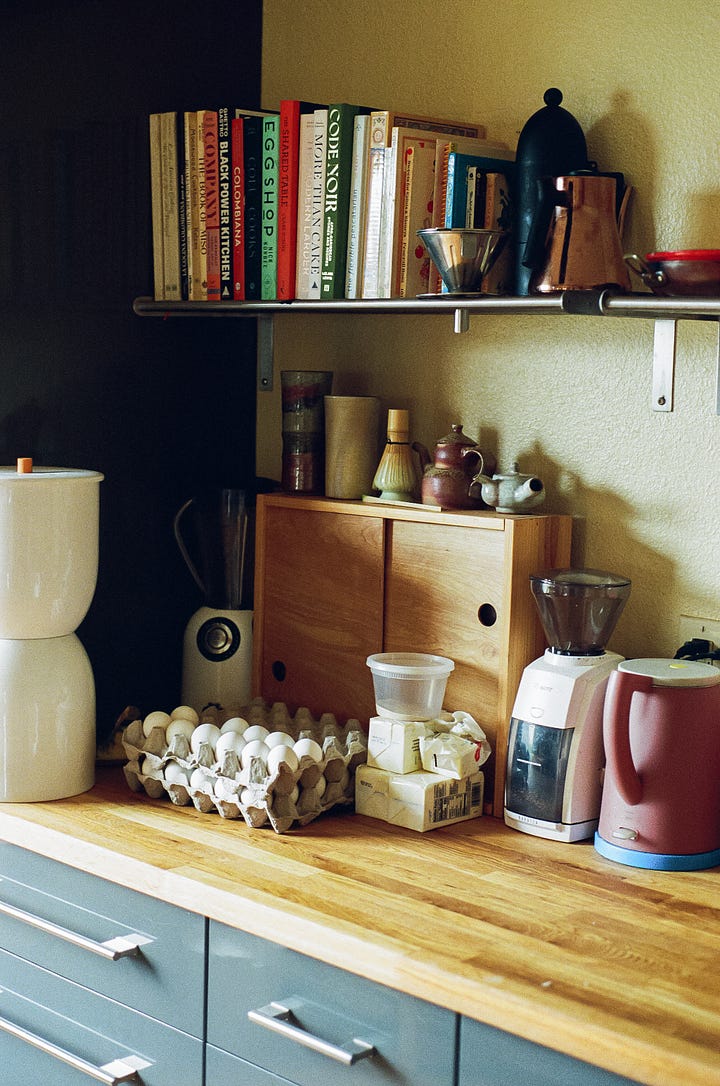
Kitchen tool you can’t live without: “My knife. I saved up for it, and I went to the shop and tested it on a packing peanut. It didn’t even squeak. I love her. I’ll have her for the rest of my life. Some people are not allowed to touch her aka my partner.”
Desert island meal: “There’s this dish my mom made a lot when I was a kid and still makes every time she visits. It’s call Chicken Fricassee. It’s literally chicken legs and thighs cooked in a thick tomato sauce with onions and bell peppers. It’s so saucy and decadent. That on white rice with sweet plantains—I could eat that forever.”
Favorite cuisines: “Aside from South American food, I think Japanese food would be my next favorite. I’m always like, the dumpling is like the empanada. It always feels really fun to honor that and see the similarities we have.”
Simple pleasures lately: “My walks in Forest Park. I have the same route and it’s really comforting. Also Trader Joe’s dairy-free, gluten-free donut holes. They’re fire.”
Go-to ingredients: “I always have miso and red curry paste in my fridge.”
Childhood memory: “I’m an only child so I spent a lot of time in my room by myself. I didn’t have imaginary friends, but I had a parakeet. I would get home and immediately hang out with him.”
What’s one of the meals you get nostalgic about?
I have spent a lot of time trying to recreate my great-grandmother’s beans, and I’ve only done it once and I’ve never been able to do it again. There’s things that I’m still learning and I love that I’ll never perfect them. That is a huge piece of me doing Comparta. Me being able to experiment and try out these things that I’m trying to collect from memory. Precision was not something that was ever taught to me. None of the women in my family or my step family wrote down recipes. It was always by the visual, the smell, the deep intuition. I would be like, how much do I put in? And my great-grandmother would be like, you’ll know when to stop. That’s melted into so many other parts of my life where I do deeply trust my intuition. People ask me if I’d ever write a cookbook. I would love to, but I also don’t write anything down.
What are you thinking about when you’re cooking?
Funny. I was having this conversation with another cook not too long ago. We were both cooking together and there was music playing in the kitchen for hours. I suddenly felt myself shut down and I think they sensed it. They were like, should I turn the music off? And I was like, yeah, do you mind? I’m either blasting music and having fun with it, or I need it to be in absolute silence. Cooking is a meditative process that allows me to have a moment to myself, which I think is sometimes hard for me to do day to day. Cooking is this thing that requires you to slow down and just kind of be present. You can’t be cooking and doing other things at once or you’re going to burn your food.
Amelia Arvesen (she/her) is the creator of Honing Her Craft and a freelance journalist who integrates her artistic side into her every day. The STUDIO VISITS series merges her curiosity as an interviewer with her admiration of creative practices, people, and spaces.
Lauren Beane (she/her) is a freelance photographer specializing in film. She values a life centered around art, nature, community, and little pleasures. This series allows her to expand her definition of what it means to live a creative, artful life while providing others a window to do the same.
You can find previous editions of STUDIO VISITS here. Support this series by liking it, forwarding it, or upgrading to a paid subscription.

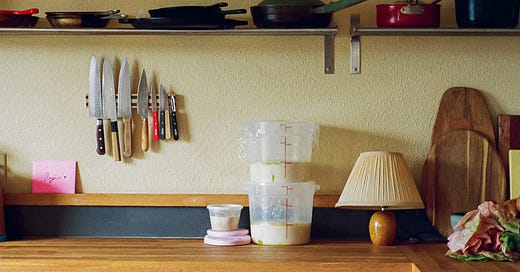


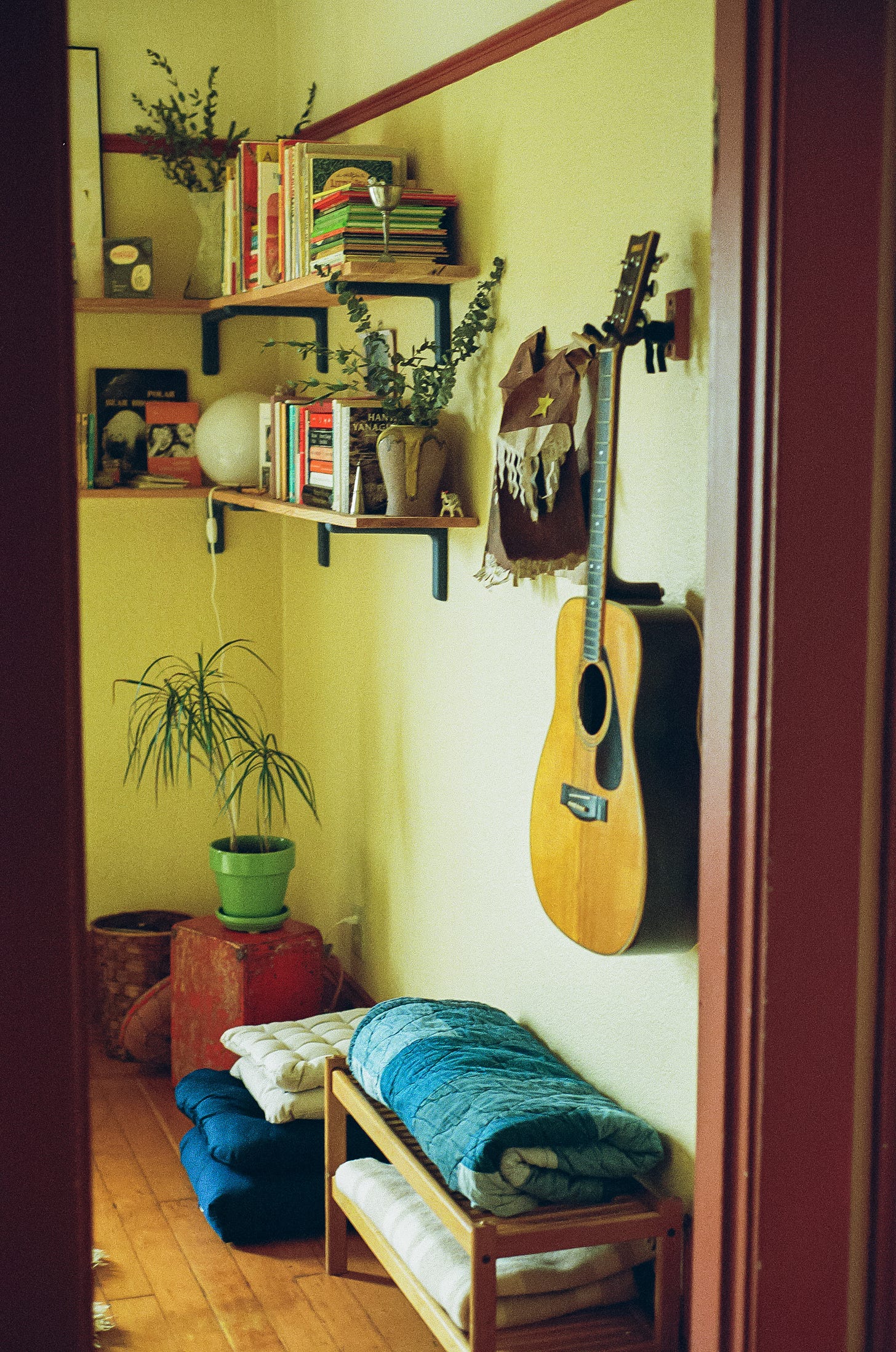

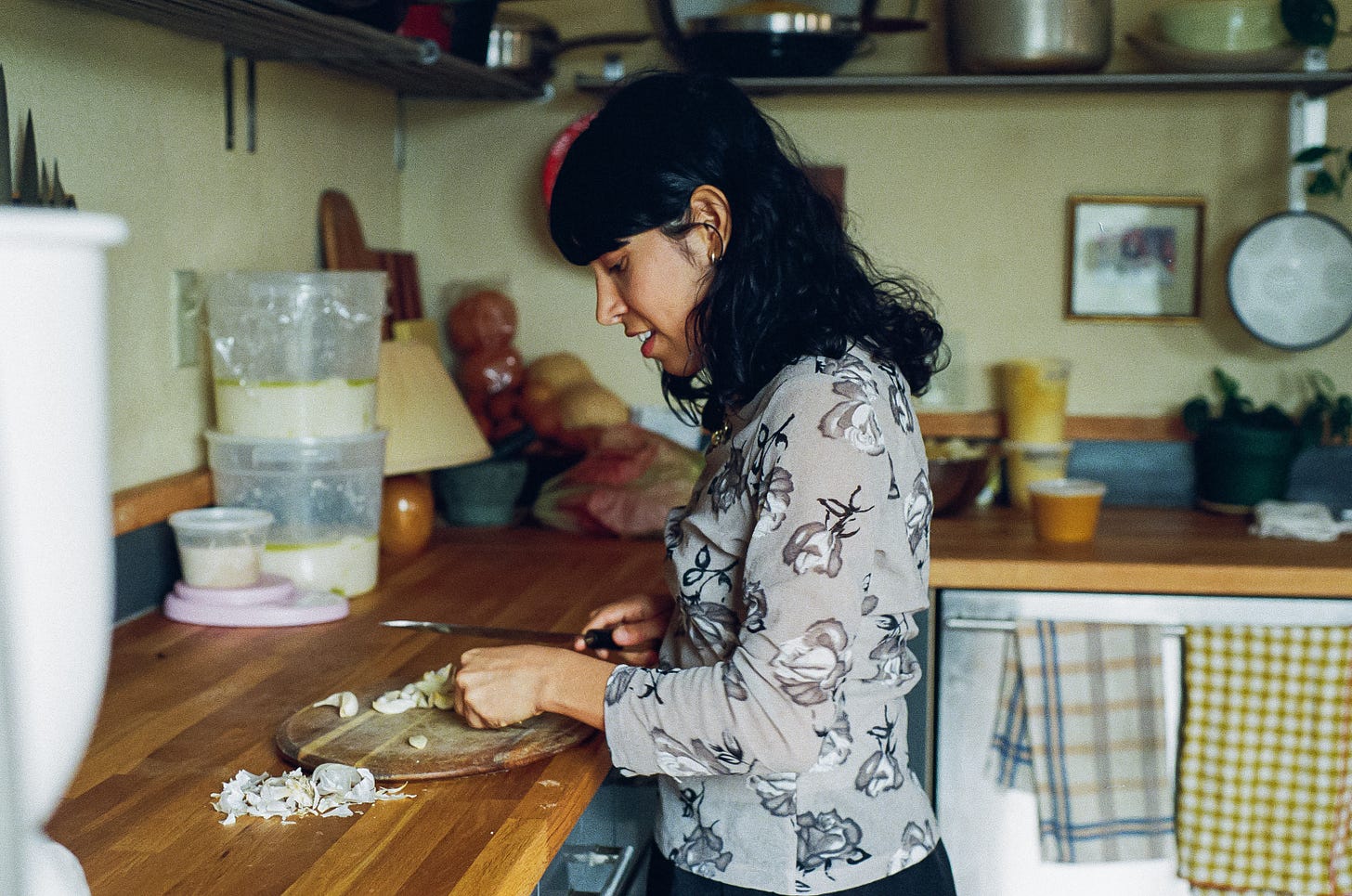
What a gorgeous read! Thanks for sharing.